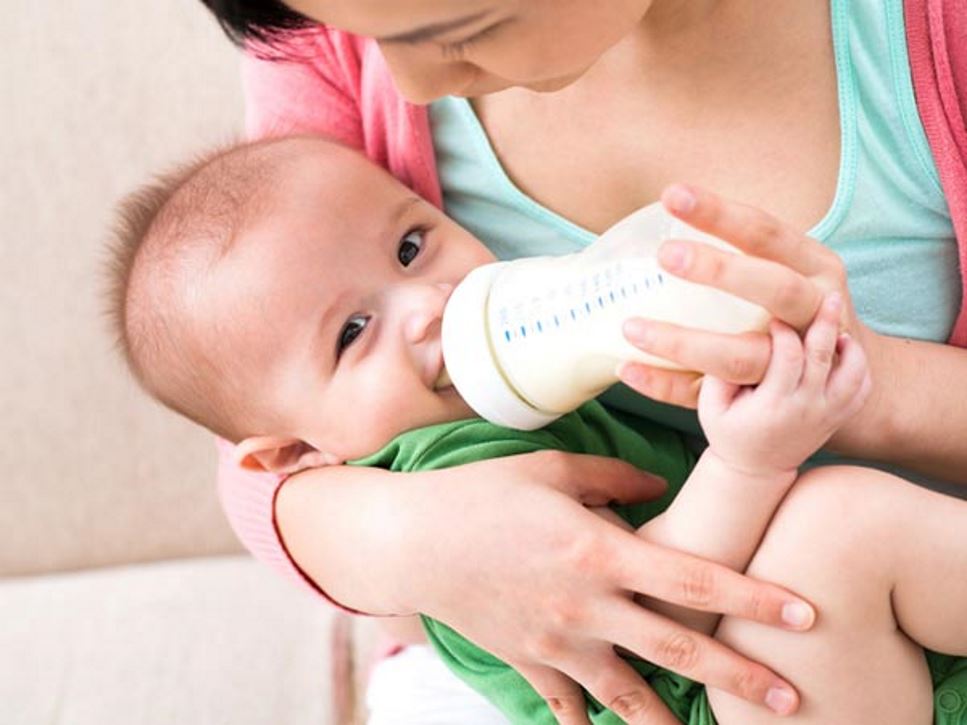Although there are numerous benefits to breastfeeding, and it is recommended exclusively by many health organizations until at least six months of age, there may be circumstances when infant formula is chosen instead.
Choosing the Right Formula
There are different types and forms of infant formula; your baby's doctor or clinic can help you choose the right one. The most common formulas are made from specially treated cow's milk and fortified with iron.
Regular cow's milk should never be given to children younger than 1 year. Babies cannot digest milk protein properly and it doesn't contain the right amounts of iron or vitamin C for growing infants.
Your health care provider may recommend a soy formula or other specialized formulas such as those for premature babies. Discuss any feeding changes with your doctor or a registered dietitian nutritionist. Formulas come in ready-to-use, concentrate and powder forms. Powder is the least expensive. Read the label and follow all mixing instructions carefully.
Baby Bottle Safety
Keep babies safe while bottle feeding. Here are the best ways to keep your baby from getting sick, reduce the risk of injuries and promote good dental health:
- Keep Formula Clean
Wash your hands before mixing formula or feeding. Clean bottles in the dishwasher or follow the manufacturer's instructions. Use refrigerated formula within 24 hours of mixing and discard anything left in the bottle after a feeding. - Warm Formula Carefully
Warm bottles under warm running water or place in a bowl of warm water for a few minutes. Never heat bottles in the microwave or on top of the stove. Test the temperature of the formula by shaking a few drops onto your inner wrist and use immediately. - Use Only Formula in Bottles
Never put anything in a baby's bottle except formula or pumped breast milk. This includes cereal, other foods and sweetened drinks such as soda or powered drinks. Juice and cow’s milk are not recommended during the first year of life; after that time, your child should be ready to use a cup.
Other Considerations
Whether breastfeeding or bottle-feeding, babies do best with cuddling and love at meal times. Sit in a quiet, comfortable place and relax. Hold your baby in a semi-upright position and talk softly while feeding.
Every baby has a different feeding rhythm and it takes some babies a while to settle into a regular routine. During this time, try feeding “on demand” when he or she seems hungry. Allow your baby to decide when to stop eating. Toward the end of a feeding, your baby may fall into a light sleep or naturally turn away from the bottle. If this happens, remove the bottle. Never try to force a baby to finish a bottle.
Gently burp your baby midway and at the end of feeding. Burping removes uncomfortable air from your baby's tummy; you can burp your baby over your shoulder or knee. Spitting up small amounts of formula is normal during feeding or burping.
Find a Nutrition Expert
Looking for credible nutrition information and recommendations? The Academy of Nutrition and Dietetics' network of credentialed food and nutrition practitioners are ready to help!


